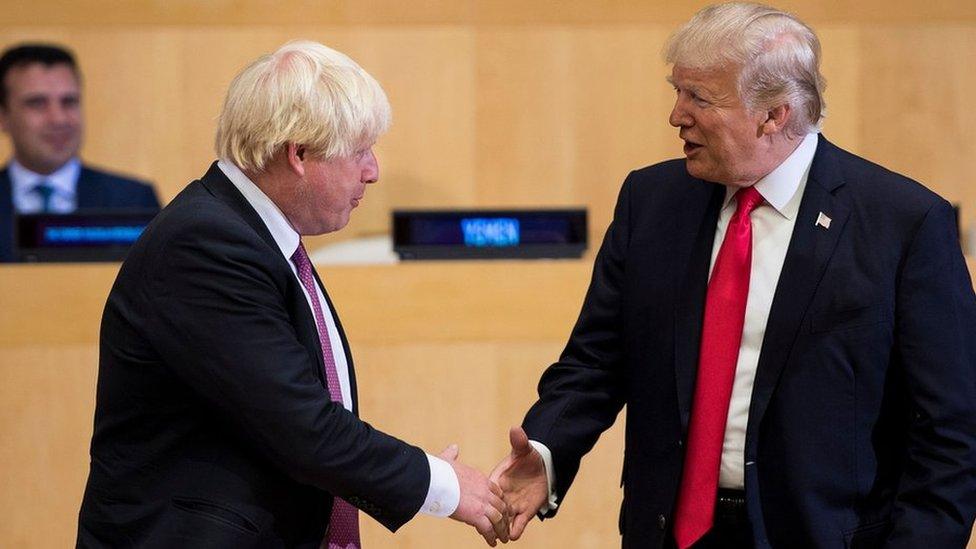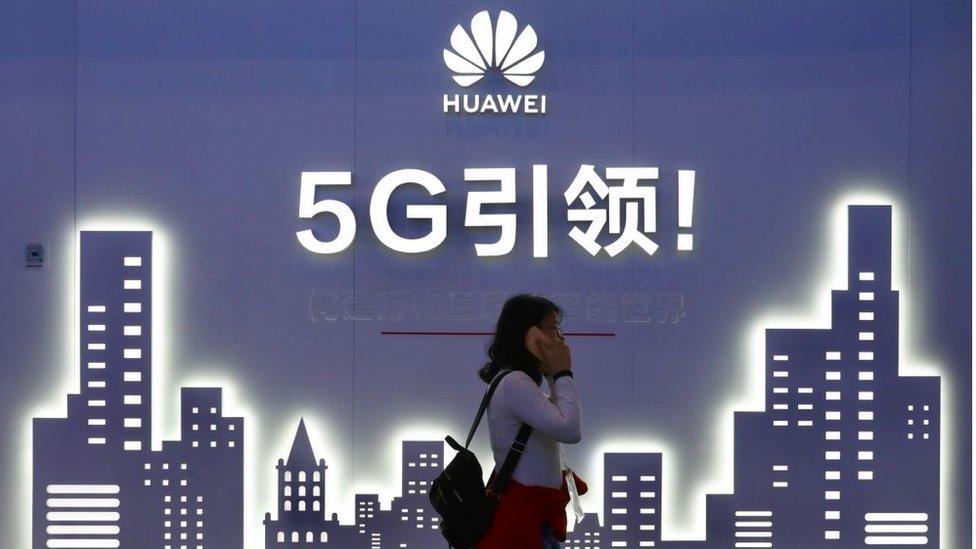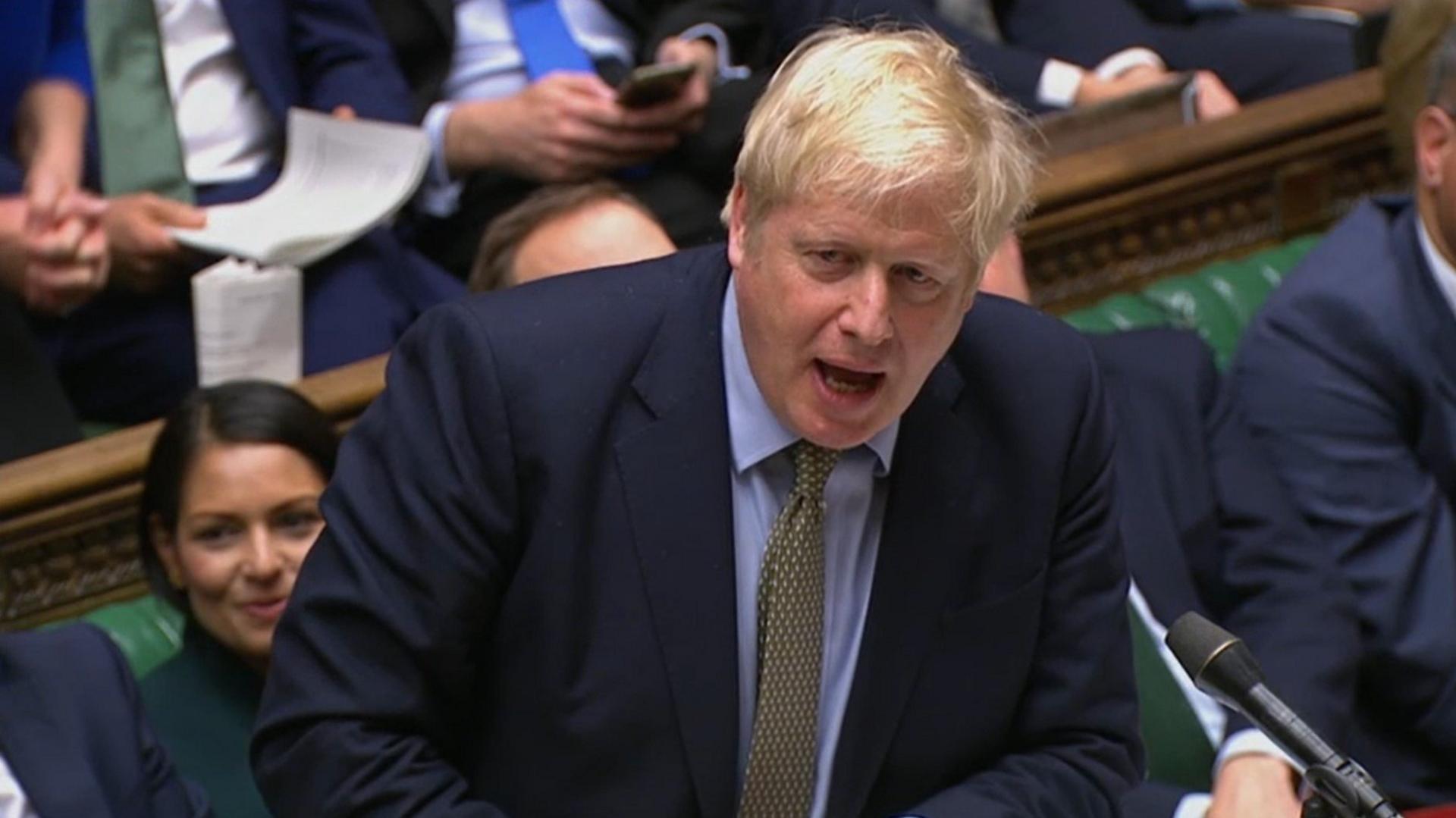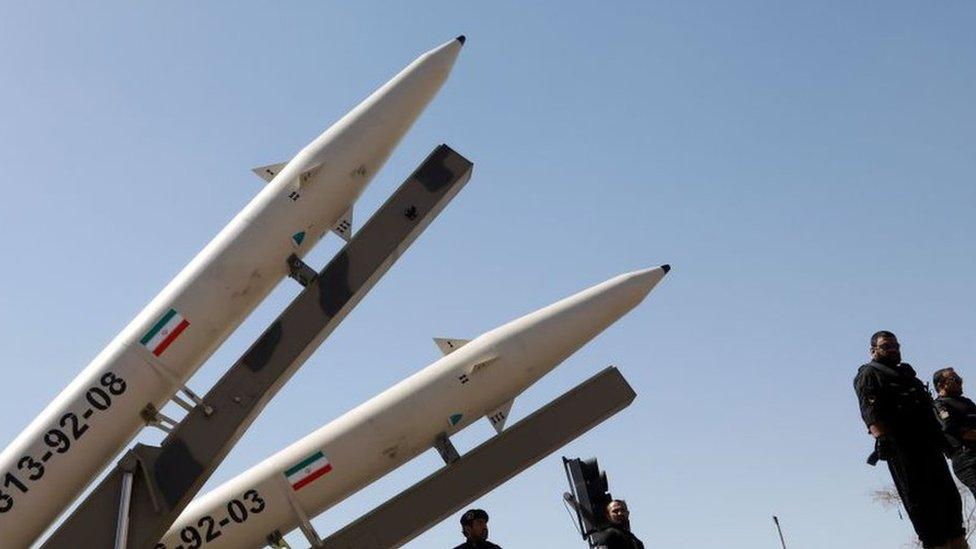US-UK relations: Is London toughening its stance with Washington?
- Published

UK officials insist that there is no deliberate attempt to pick a fight with the US
For years, much tosh has been spoken about the so-called special relationship between the United Kingdom and the United States.
The two countries are allies of long-standing with shared values, history and language. Both have shed much blood and treasure together in defence of freedom. The beaches of Normandy bear witness to that.
But both countries have also fallen out at times, most bitterly over the invasion of Suez and the Vietnam War. American schoolchildren are all reminded that it was the British who burned the White House to the ground in 1814.
So talk of special bonds or irreparable divisions between the UK and the US should always be treated with some context, if not scepticism. Thus it should be with the current tensions between London and Washington.
Certainly, these differences are many and varied. The confrontation over the killing of Harry Dunn is highly charged and now official. The US has formally refused the extradition of Anne Sacoolas, the wife of an American intelligence officer, who has been accused of causing Harry's death in a car crash last August. The British say her diplomatic immunity should be waived for justice to be done, the US says that would weaken the protection given to American diplomats elsewhere in the world. This is a dispute that has some way to go.

Charlotte Charles, Harry Dunn's mother, says the family will not give up its call for extradition
The UK and the US are at odds over European plans to levy a two per cent digital services tax on large technology companies, most of which are American. The UK believes firms such as Google and Facebook should pay taxes for benefits they receive in Britain. But the US has described such a tax as arbitrary and threatened the UK with a reciprocal levy on British car sales. The US has also warned that a trade deal with post-Brexit Britain might be harder to agree if a digital tax were levied.
Let us not forget Huawei. The British government is expected to decide in coming weeks that it will allow the Chinese tech giant some involvement in generating the UK's 5G infrastructure. The British say without Huawei's help, the introduction of new superfast broadband would be delayed and the UK economy damaged. The Americans warn the firm poses a security threat because of its close links to the Chinese state. Again, the Americans have made a threat, this time to withhold intelligence from their British allies.

Any Huawei involvement in the UK's 5G infrastructure is a controversial subject for the US
And then there is Iran. Britain - along with its European allies - is scrambling to keep the Iran nuclear deal on life support. They believe that even in its much weakened state the agreement is worth protecting: United Nations inspectors can still see what nuclear capabilities Iran has; the deal still provides a forum for much-needed dialogue with Iran. The Americans reckon the deal simply gives Iran the economic freedom to project terror across the Middle East. They failed to inform the UK about their assassination of the Iranian general, Qassem Soleimani.

Anti-US protests in parts of the Middle East followed the assassination of Iranian general Qassem Soleimani
If that were not enough, Defence Secretary Ben Wallace recently gave an interview to the Sunday Times in which he suggested the UK should be prepared to fight wars without the US. "The assumptions of 2010 that we were always going to be part of a US coalition is really just not where we are going to be," he said. By any standards, this is extraordinary stuff to hear from the mouth of a UK defence minister.
Thus the current state of UK-US relations: a heated diplomatic row, the prospects of a trade war, an extraordinary threat to withhold intelligence and a fundamental disagreement on one of the biggest foreign policy issues facing the world.

Is the UK prepared to fight wars without the US?
So why? Why are relations at such a poor standing? Here are a few thoughts:
1. The UK is clearly trying to carve out a more independent approach towards its foreign relations, not just the US in particular. The Conservative government is newly elected with a fresh mandate and a healthy parliamentary majority. It has the numbers to be more confident on the international stage.
2. The UK is in the process of achieving its priority foreign policy, namely Brexit, and is keen to project itself around the world. The phrase 'Global Britain' is being heard once again in the corridors of Whitehall. Not only does the government want to counter the idea that withdrawing from the EU is somehow a withdrawal from the world, it also seems to want to recast its default role as a transatlantic bridge.
3. The UK is trying to repair its relations with the EU after a bruising few years and establish a new post-Brexit partnership, particularly on foreign policy. UK diplomats are keen to continue cooperating with France and Germany through the so-called E3 structures that are used at the moment to discuss Iran.
4. There may be a calculation that the one thing Donald Trump recognises is power and will respect a leader who stands up for his country's national interests. Policy-makers around the world are beginning to realise that not all of the president's threats are actually carried through. Will the US really withhold intelligence from one of its so-called Five Eyes allies?
5. The differences can be exaggerated. On Iran, Boris Johnson has made clear that he is keen to look for an alternative to the Iran nuclear deal, also covering the country's missile programme and regional aggression, what he calls a "Trump deal". Mr Wallace's remarks about the UK needing to contemplate military action without the US should be seen in the context of his battle for defence budgets in the forthcoming Whitehall spending round.
6. American anger over a digital tax is real. But any post-Brexit trade agreement with the US was always going to be hard. One US diplomat says he "doesn't think the light has gone on" in Whitehall about how hard it is going to be. Any row over digital taxes is not going to change that.
7. As for Huawei, well here the UK is trying to forge its own path towards China. British officials often say that some European allies get too close to Beijing whereas the US is too antagonistic. "We need to find a route between the 'evil empire' and 'project kowtow'," one told me.
Officials insist that there is no deliberate attempt by the UK to pick a fight with the US over all these issues. Instead, they say this is simply an illustration of the UK taking a more objective approach to different policy issues, an independent nation taking more independent decisions
The question now is how Donald Trump will respond.
- Published3 January 2020

- Published8 January 2020

- Published9 January 2020

- Published8 January 2020

